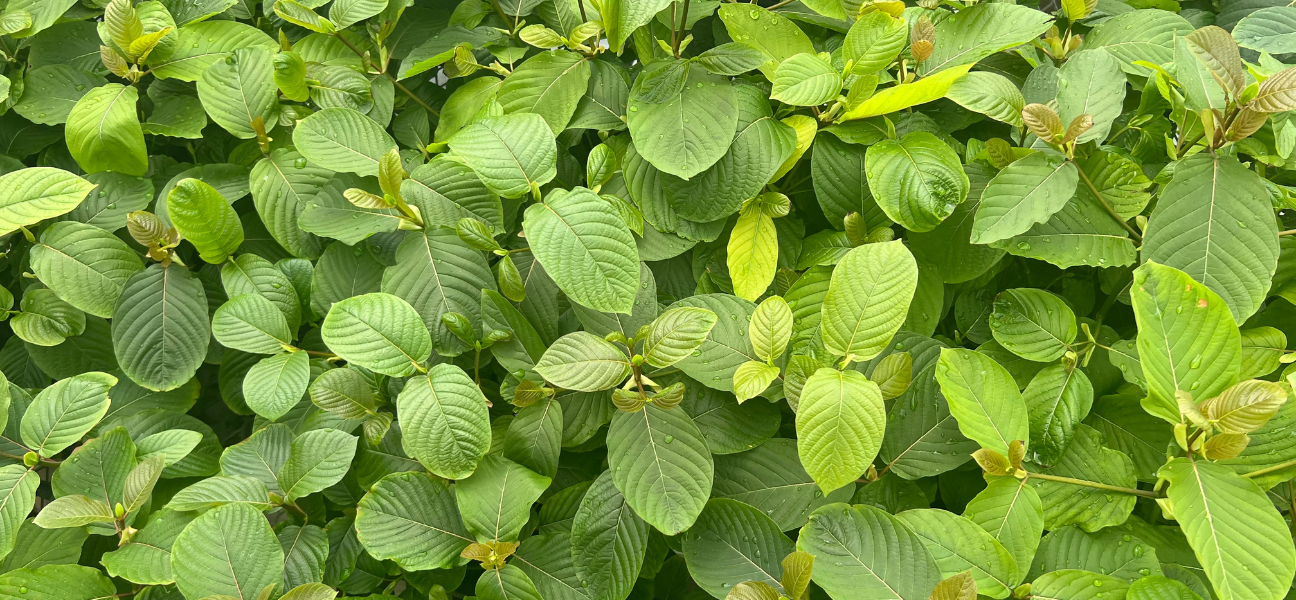Kratom Herbal Tea Experiment

One factor that separates ETHA from other botanical companies is our avid research and development through our own in-house ETHA Lab and through our outside third party partners. Our passion for science and exploration is reflected in all the products we bring to you. Enjoy this experiment we did on kratom tea.
ETHA Kratom Tea Research
A very popular way to take kratom is to add kratom to hot water and create a kratom tea. In fact, kratom teas have been the preferred way to enjoy kratom for hundreds of years throughout Southeast Asia. The question we have is:
“What percentage of alkaloids (the active ingredients in kratom) do you derive when making kratom tea?”
To determine the difference between kratom vs. a kratom tea, we created an experiment to determine the total alkaloid content of kratom powder vs. hot-water extraction (tea) vs. lemon juice pre-soak with hot-water extraction (kratom + lemon + tea).
Steeping herbs and plants in hot water is a common method used to extract alkaloids, flavonoids, and others desirable compounds. When the desire is to extract as much of the alkaloids as reasonably possible, some people recommend pre-soaking dried plant material in a weak acid such as lemon juice. Let’s find out how this impacts kratom…

Sample Preparation and Test Methodology
All samples were prepared using the same batch of dried Green Vein kratom leaves. The leaves were dried and ground to a fine powder. Three equal portions of 8.1 grams of the kratom powder were used in the experiment:
- kratom powder alone
- kratom powder added to 225 mL purified water and heated to a boil
- kratom powder added to 225 mL purified water heated to a boil and 18.6 mL of lemon juice added in
Liquid extracts were separated from the plant material using a centrifuge to minimize waste and maximize liquid extract recovery. All samples were tested at ETHA Labs as well as sent to a partner botanical testing lab using High Performance Liquid Chromatography (HPLC) to determine the presence and percentage of mitragynine and 7-hydroxymitragynine.

Kratom Tea Experiment Results
The laboratory test results showed a lower percentage of alkaloids in both water extracts. This is the result of diluting the alkaloids in water. This result is expected and not indicative of the impact of creating a tea. The more important question becomes, for each sample in total, what is the total milligrams of alkaloids available?
-
Kratom Tea = 31% decrease in mitragynine % and 0% traces of 7-hydroxymitragynine detected.
-
Kratom Tea w/ Lemon = 16% decrease only.

What Did We Learn?
When making a tea, the hot water (even when boiling for 5 mins) is not capable of extracting all the alkaloids out of the leaves. You can end up leaving up to 30% of the alkaloids in the kratom leaves or powder. Adding lemon juice does help extract some alkaloids out of the kratom. If you are going to make a tea, consider adding a citrus acid. Teas are wonderful at any time in the day, but keep this experiment in mind and think of ETHA, the next time you enjoy a nice cup of kratom tea.

One More Thing...
A common question we get is whether or not heating kratom in boiling water can reduce alkaloid content. The temperature in which water boils is lower than the melting point of kratom’s alkaloids. The temperature in which alkaloids like mitragynine actually breakdown is even higher. So, adding kratom to boiling water should not be an issue. To be safe, wait until your water is cooled a bit from boil (like in most teas) before adding your kratom powder or leaves.
If you want the easiest way to enjoy a cup of kratom tea, try our ETHA kratom tea bags. LIVE FULLY!


















Leave a comment